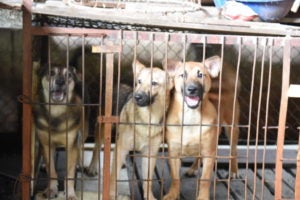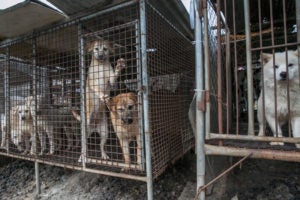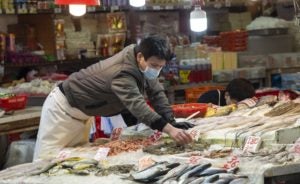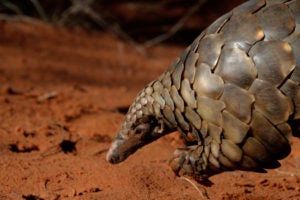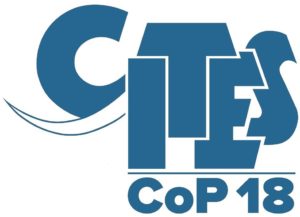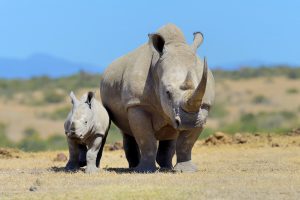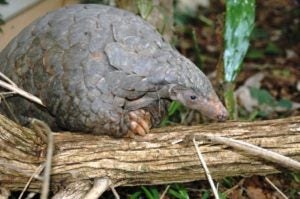
BRUSSELS/HANOI—Today’s ratification of the free trade agreement with the European Union by the Vietnamese National Assembly heralds a new era of intergovernmental cooperation on animal welfare and wildlife protection between the two. The European Parliament and the Council of the European Union approved the agreement earlier this year. Humane Society International believes that, if supported with resources, the agreement has significant potential to protect wildlife and increase cooperation on animal welfare.
Dr Joanna Swabe, senior director of public affairs for HSI/Europe, said:
“Humane Society International believes that both Parties should seize the opportunity presented by this historic trade deal to increase their cooperation on animal protection. Although there were very limited animal welfare provisions, it does offer a chance for the EU to provide technical assistance and capacity building to advance farm animal welfare in Vietnam. The 2019 mass culling of pigs to eradicate African swine fever there illustrates just how badly such veterinary assistance is needed. The culling process was extremely inhumane due to lack of the right equipment and skills needed for electrical stunning and killing. Through increased cooperation with the EU, a long-term programme of training, capacity building and assistance could be instituted to teach humane animal-handling techniques and proper equipment use to safeguard the welfare and dignity of animals at the time of killing.”
Phuong Tham, director of HSI/Vietnam, added:
“In addition to sharing much needed knowledge and technical assistance on farm animal welfare, the EU-Vietnam free trade agreement includes provisions that can help support our government’s efforts to curb the trade in wildlife products. Sadly, Vietnam continues to serve as a source, consumer and transit country for the illegal wildlife trade. HSI/Vietnam hopes that, through the proper implementation of this trade deal and development cooperation, we can successfully reduce the demand for wildlife products and increase our government’s enforcement capacity with the training and tools needed to tackle the scourge of wildlife trafficking. The illegal wildlife trade not only poses a threat to biological diversity and natural habitats, but, as the COVID-19 pandemic has demonstrated, it can also pose a serious threat to public health. It was technically already illegal to sell and consume wild-caught species in Vietnam, but the existing rules were poorly enforced and wet markets selling wildlife have proliferated.”
Once the trade agreement enters into force, both HSI/Europe and HSI/Vietnam intend to apply to join the respective Domestic Advisory Groups that will be established to allow civil society representatives to monitor the implementation of this free trade agreement.
Facts
- The EU and Vietnam signed a trade agreement and an investment protection agreement on 30th June 2019. The Council of the European Union approved the agreement on 30th March 2020 after the European Parliament gave its consent on 12th February 2020.
- The Cooperation and Capacity Building Chapter of EU-Vietnam FTA states that the “Parties agree to cooperate on animal welfare as necessary, including technical assistance and capacity building for the development of animal welfare standards.”
- As of mid-December 2019, 6 million pigs in Vietnam have been culled in an attempt to eradicate African swine fever. The inhumane culling process highlighted the need for better training and equipment.
- The Trade and Sustainable Development Chapter of the EU-Vietnam trade agreement includes commitments to the proper implementation and enforcement of multilateral environmental agreements, as well as provisions aiming to protect biodiversity and reduce illegal wildlife trade through information exchange on strategies, policy initiatives, programmes, action plans and consumer awareness campaigns. It also includes a commitment to enhance cooperation to increase species protection through the proposal of new CITES listings. Notably, in 2019, the EU and Vietnam jointly submitted proposals and succeeded in listing various reptile and amphibian species on CITES Appendix II.
- Rhino horn is valued in countries like China and Vietnam for purported medicinal benefits, although there is no scientific evidence to back these claims. Horn can be sold for high prices on the black market, but there are indications that the price has fallen recently in Vietnam, thanks in part to a campaign to reduce rhino horn demand launched in 2013 by HSI and the Vietnamese government. The multi-faceted campaign has reached an estimated 37 million people—approximately one-third of the national population.
- In 2016, HSI organized the first-ever Pangolin Range States Meeting, co-hosted by the governments of Vietnam and the United States, and attended by over 30 pangolin range states in Vietnam.
- With HSI’s support, Vietnam held an event in November 2016 at which, for the first time in the country’s history, over two tons of elephant ivory, 70 kg of rhino horn, and other seized wildlife specimens were destroyed to send a message to the international community that the living animals are valued, rather than the products derived from them.
- HSI partnered with the Vietnam Ministry of Agriculture and Rural Development and the Ministry of Education and Training to implement a ground-breaking project under which millions of schoolchildren in Vietnam received educational lessons on threatened wildlife as part of an effort to tackle illegal trade in rhinos, elephants, pangolins, tigers and more.
END
Media contact: Phuong Tham, phuongth@hsi.org

